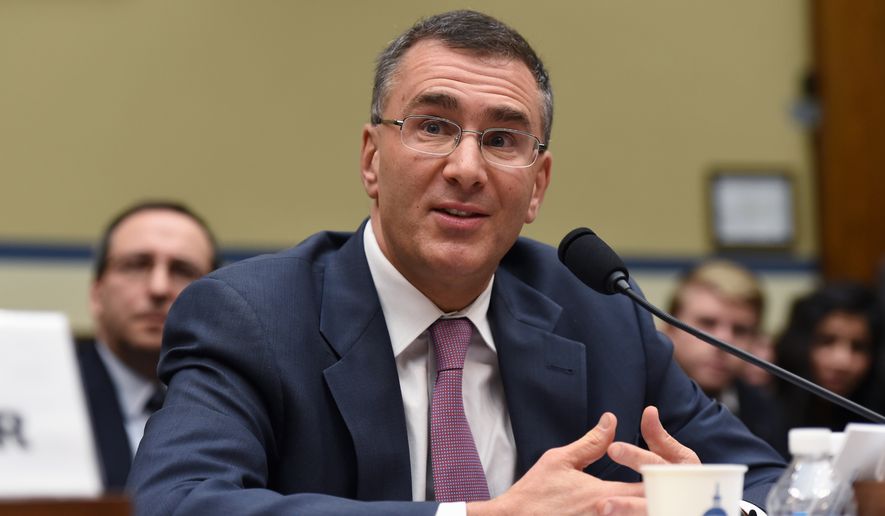The White House Monday defended its portrayal of MIT professor Jonathan Gruber as a contractor with a limited role in crafting Obamacare, dismissing the claims of GOP investigators who uncovered a steady stream of emails that sketched a cozy relationship between President Obama’s team and the economist who once commented on the “stupidity of the American voter.”
Mr. Gruber checked in repeatedly with White House and Health and Human Services officials, giving advice on how to craft the health law and seeking guidance on how he should describe his role to reporters.
A top White House aide referred to Mr. Gruber, who provided his sophisticated economic models to the White House, as an “integral part” of the health-reform project and even “our hero,” according to the 20,000 pages of emails procured from MIT and first reported by The Wall Street Journal.
The laudatory references stood in contrast to Mr. Obama’s description of him last year as “some adviser” who wasn’t on staff and played a peripheral part in developing the Affordable Care Act of 2010 — an attempt to downplay his role after web clips of his impolitic musings on the health overhaul quickly circulated around Capitol Hill.
White House press secretary Josh Earnest said the administration stood by its descriptions.
“If there’s a bombshell that is included in those emails, it certainly hasn’t gone off,” Mr. Earnest said.
House Republicans, though, said it marks another time the White House has been embarrassed by Mr. Gruber. Tapes emerged last year of Mr. Gruber saying the health law was written in a “tortured” way to game the budget scoring system, enabling it to pass under what Republicans said was a false subterfuge.
“These new emails uncovered by our committee now show that Gruber was more integrally involved than we thought, advising all of the president’s point people on health care,” said Rep. Jim Jordan, Ohio Republican and member of the House Committee on Oversight and Government Reform.
Mr. Gruber declined to comment Monday.
The probe by Oversight Chairman Jason Chaffetz, Utah Republican, is breathing new life into “Grubergate” days before the Supreme Court rules on a case that could severely hamstring Obamacare by invaliding its subsidies in at least 34 states.
Plaintiffs in the challenge say the 2010 law limited its subsidies to the handful of states that set up their own markets. And they say Mr. Gruber supported their position in taped remarks from January 2012, when he said, “If you’re a state and you don’t set up an exchange, that means your citizens don’t get their tax credits.”
Mr. Gruber told Congress he was speaking hypothetically about what would happen if the Obama administration “for whatever reason might not create a federal exchange,” although GOP lawmakers insist he was speaking truthfully in a moment of candor.
Those comments could be damning to the administration’s stance if Mr. Gruber was a key adviser, but the comments are less important if he wasn’t.
In another clip, Mr. Gruber suggested that a “lack of transparency” was “a huge political advantage” in getting Obamacare across the finish line.
“And basically, call it the stupidity of the American voter or whatever, but basically that was really, really critical to get the thing to pass,” he said.
The professor, called before the House oversight panel to explain himself in December, apologized for the remarks yet downplayed his role, saying he “was not the architect of President Obama’s health care plan.”
He said he simply provided proprietary economic models to help officials game out their policy choices.
Mr. Chaffetz is investigating the sole-source contract HHS gave to Mr. Gruber, and has asked department Secretary Sylvia Mathews Burwell if the agency could have gotten that kind of analytics from anyone else.
The administration defended the arrangement by pointing to a 2010 inspector general’s report that found the government followed federal acquisition rules.
“As has been previously reported, Mr. Gruber was a widely used economic modeler for administrations and state governments run by both parties — both before and after the Affordable Care Act was passed,” HHS spokeswoman Meaghan Smith said Monday. “These emails only echo old news.”
• Tom Howell Jr. can be reached at thowell@washingtontimes.com.




Please read our comment policy before commenting.